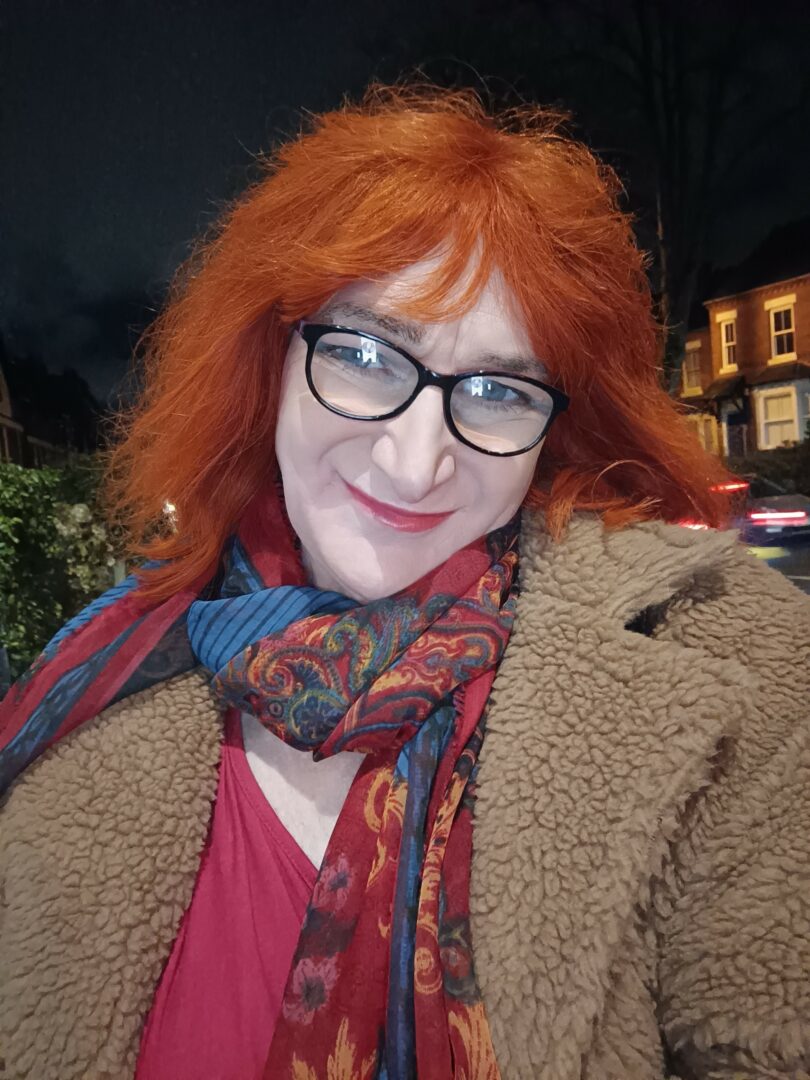We’re excited to introduce you to the always interesting and insightful Sadie Kaye. We hope you’ll enjoy our conversation with Sadie below.
Sadie, so great to have you with us and we want to jump right into a really important question. In recent years, it’s become so clear that we’re living through a time where so many folks are lacking self-confidence and self-esteem. So, we’d love to hear about your journey and how you developed your self-confidence and self-esteem.
I have always been able at creative things: art, music, maths and science. I was always terrible at other things, like getting myself organised, doing admin, and especially at sport. My school was therefore very mixed but when it came to maths and science I never had any difficulty. I got a place in a very good university, and once I had learnt the lesson that I had to work at my studies — I couldn’t coast and be top of the class like at school — I did very well. I played trombone, in orchestras mostly, and drew and painted all my life and loved it. I rated myself at no more than “good amateur” in these but they were a useful pastime. I went on to do a PhD in Maths and this went surprisingly well. In a time when getting academic jobs was particularly difficult, I succeeded here too. For a while I was once of the younger lecturers in the department, and quite a bit younger than many of the PhD students.
(As an aside, people often say that Maths and Art don’t go together well. I disagree. At the PhD or research level, Maths is a very creative subject. Your job is to create an imaginary world and explore it. If you are lucky this imaginary world will be similar to or relate to other worlds you have learnt about, including possibly our idea of “the real world”. There is nothing more creative or artistic than this.)
But I had no real confidence. I had some self-esteem, because I knew that a lot of what I did was good, but few people ever said this. After a while in the department I was working I found I was being sidelined. I was given certain subjects to teach simply because no one else wanted to teach them.
Then came lockdown and teaching went online. That was even worse, but there is something else you need to know first. All my life, since my very earliest memories I felt I had been born wrong. The person I was inside did not match the person I looked like nor the person everyone said I was. And all my life this incongruence had resulted in occasional taunts and bullying, as well as my inability to “get on” socially, make small talk and conversation. It even prevented me going out and enjoying myself; I had very few friends and was gawky and awkward.
But as a new year’s resolution for 2019 I finally decided to do something about it. I would experiment, change my image, and present as a different person to match better how I felt inside. I had no idea where this would take me. Perhaps to something non-binary. I regretting not having grown up in a time when words like “dysphoria” were widely known and understood but in my late middle age I realised that was the problem.
So, starting from January 2019 I started work on myself. I changed the way I looked. I acquired a number of new clothes and accessories and in mid April that year I was ready to go out on my own (the only person who knew what I was doing wouldn’t come with me) as a woman. But please understand a few things before we go any further with the story. There are a lot of theories and misconceptions about this. In my case they are all wrong.
This was, for me, a calculated attempt to redefine my presentation to match the inner me. It was not something I had ever tried before. It was nice to wear tights and a dress but it did not and never has given me a sexual thrill to do so. Many cross-dressers go on about underwear: I could not care less about this. No one was ever going to see my underwear so all that mattered was it was functional. Nor was it about homosexuality or the “thrill” of “trapping” a man (or a woman). Sex had nothing to do with it. I was up to that time 100% heterosexual. I had no idea where my sexuality would take me, and I didn’t care because it had nothing to do with anything. I just wanted to be me. I would also add that initially this was an experiment to see what my options were. I had every expectation that I would settle on something different in the end, though that’s not how it turned out.
What happened surprised me. In only a few weeks, going out once a week or when I could, I saw a respect for me in the eyes of the people I talked to. And an understanding of “me” that for the first time was close to matching the real “me”. Inside I felt completely natural and at home in my new shell. People told me I was natural, as if I had been dressing like this all my life, and my confidence shot up, went through the roof. Not only that, but all the other problems in my life (problems that I had identified but thought were all separate) evaporated away. I could chat to people, make small talk. I suddenly had the confidence to go out on my own and enjoy myself in the ways I’d always imagined but previously never could. Magically, I could dance when I couldn’t before. And most of all I could make friends. Lots of them. And they are still dear to me.
It only took about 2 months before I knew this had to be the rest of my life. This was the way I had to be to be the best person I could be — not just to me but to others. And this was the way that I could contribute most to the world.
I planned to be “out” at work in March 2020. This was the moment when I could present as me to the whole world without criticism, e.g. by my employer. Sadly COVID also chose March 2020 to hit, and this joyful time that I was expecting and looking forward to so much ended up being the opposite: locked down with none of the social contacts I craved and had just discovered how to make the most of.
Since then, my journey has progressed. I am on the pathway to a full medical transition, and I have moved on from my academic work. But so has politics progressed, in the opposite direction. Anti-trans activists focus on all the false reasons for someone like me. All the reasons that were (and still are) valid for me are ignored. People talk about people like me as “making a choice” — often they say with the motive to gain access women’s space. Don’t get me wrong, I have have many wonderful conversations with women in what the Americans call bathrooms, but always respectful and that’s all anyone expects. This journey is painful, but it’s not a choice its a necessity. (If you are reading this and you are not trans, ask yourself when did you decide to be not trans?) I have the confidence of knowing I have lots of friends that appreciate me being exactly me at last.
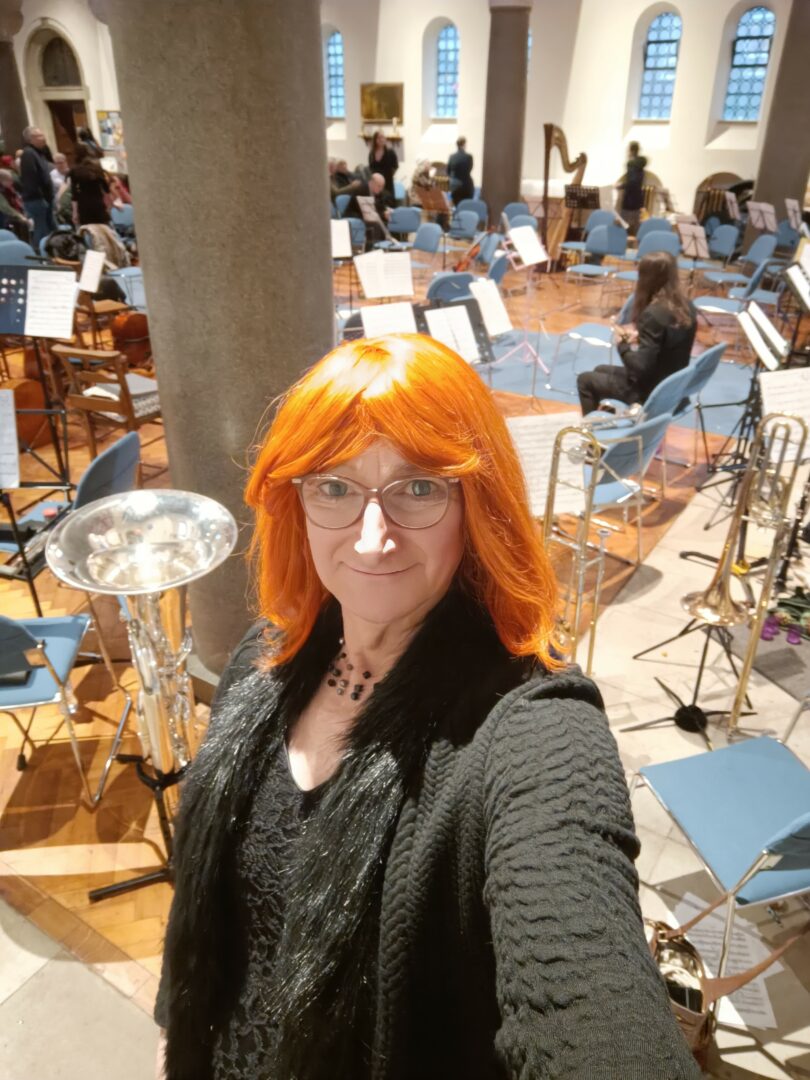
Thanks, so before we move on maybe you can share a bit more about yourself?
Since leaving my University Career in Mathematics I have been working freelance in art and writing.
My art is something I have carried with me all my life, albeit without any formal training. After lockdown I decided to work very hard at it to see where it could take me. No doubt backed up with the new confidence I had gained post-lockdown (see elsewhere) I discovered I am much better than I ever thought I could be and, not only that, but I have a unique “voice” in painting that is like no one else I know. My favourite subjects are that human body (objectively and expressively, with or without clothes, or just as a portrait) though I do landscapes and others occasionally. My favourite medium is oil, with soft pastel coming second. In painting, my style is expressionistic. Kokoschka and Auerbach are important influences. I have been told I draw like Tracey Emin, and I think this is right. I wouldn’t say she was an influence, just that we are clearly on the same wavelength. I was certainly honoured to be compared to her. I have exhibited my work around the Birmingham area.
I started writing seriously after lockdown. I had written technical books before, and very much enjoyed the process of writing, but wasn’t sure I could write creatively. Again, I surprised myself. I have published a book of poetry “The unfolding and refolding of Kelsey Galileus” and short stories, including “I, Robotess” in “Night Time Economy” (Floodgate press). I have a book on Norse Mythology in verse coming out later in 2025. (This will be available via Amazon.) I am always writing and starting new projects.
https://sadie.org.uk
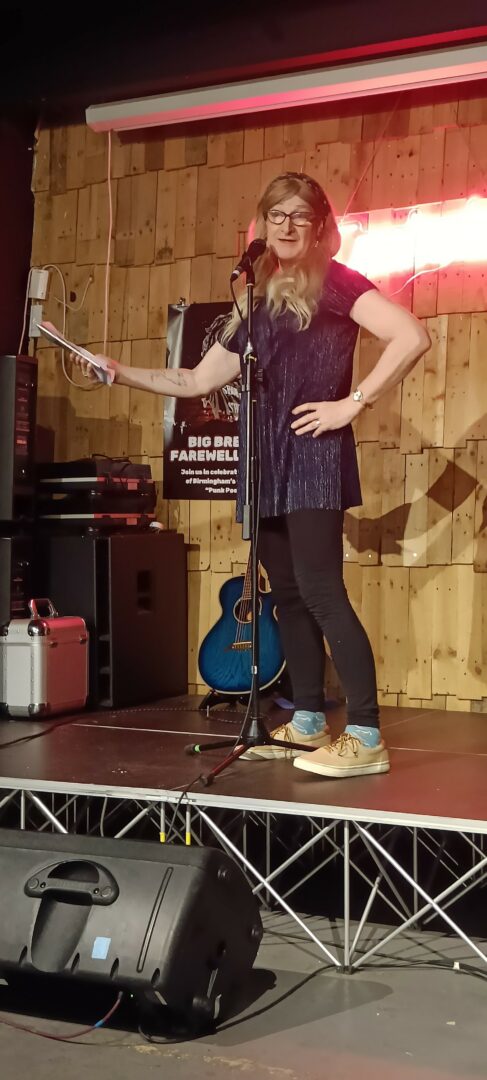
There is so much advice out there about all the different skills and qualities folks need to develop in order to succeed in today’s highly competitive environment and often it can feel overwhelming. So, if we had to break it down to just the three that matter most, which three skills or qualities would you focus on?
Know myself.
Be myself.
Trust in myself.
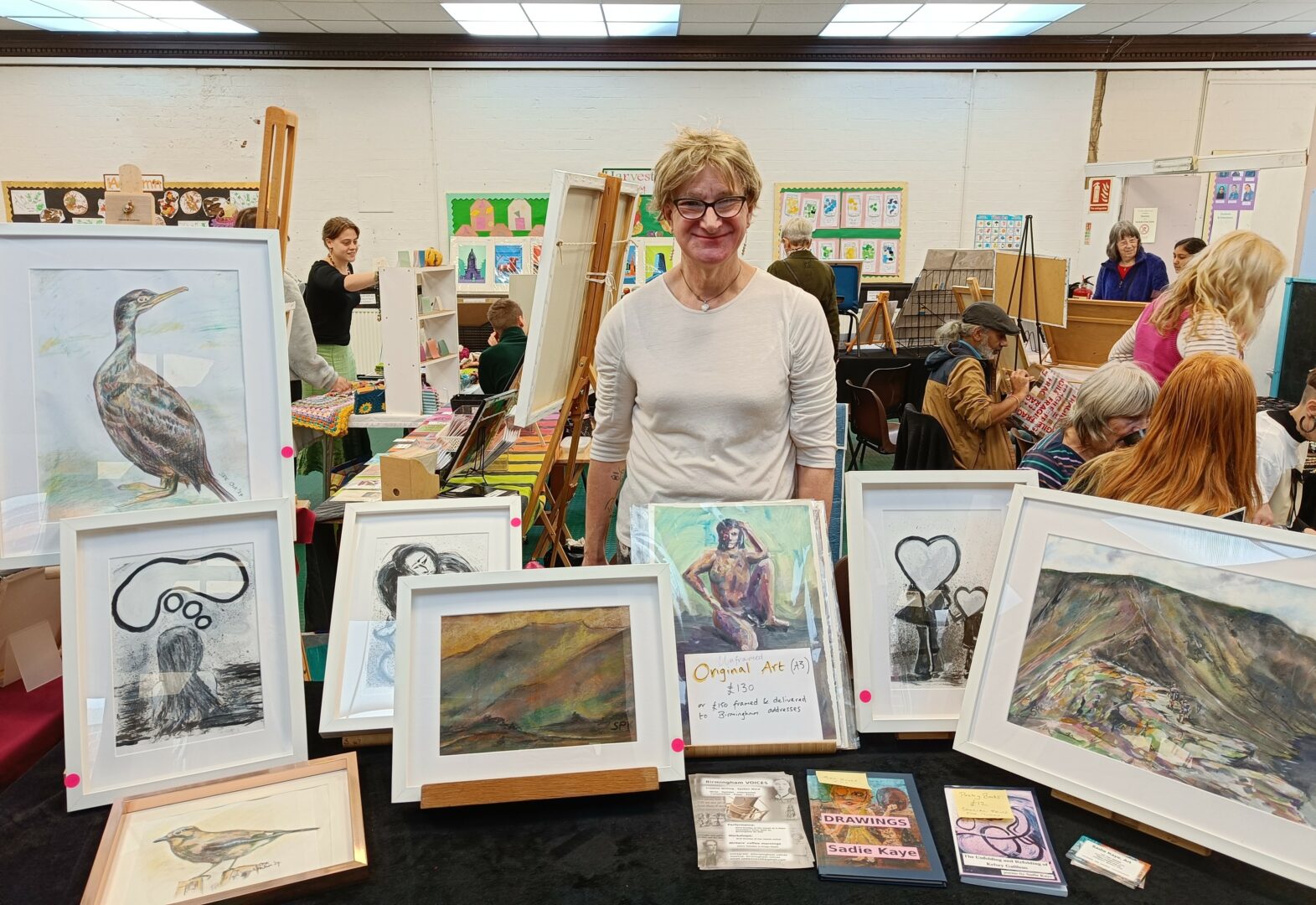
Who has been most helpful in helping you overcome challenges or build and develop the essential skills, qualities or knowledge you needed to be successful?
My parents were for sure the most important people in my life. They were professional scientists and amateur creatives. I learnt almost everything I have needed to get started in Maths, Science, Art, and Writing from them. And the rest of it has been myself. Without driving myself to do more in these areas I would not have succeeded to the extent I have. My story or “journey” has been unusual and most people say I am “brave”. It should not be brave to be oneself, but it is necessary to trust oneself and push harder to develop all the time.
Contact Info:
- Website: http://sadie.org.uk
- Instagram: sadie_artist
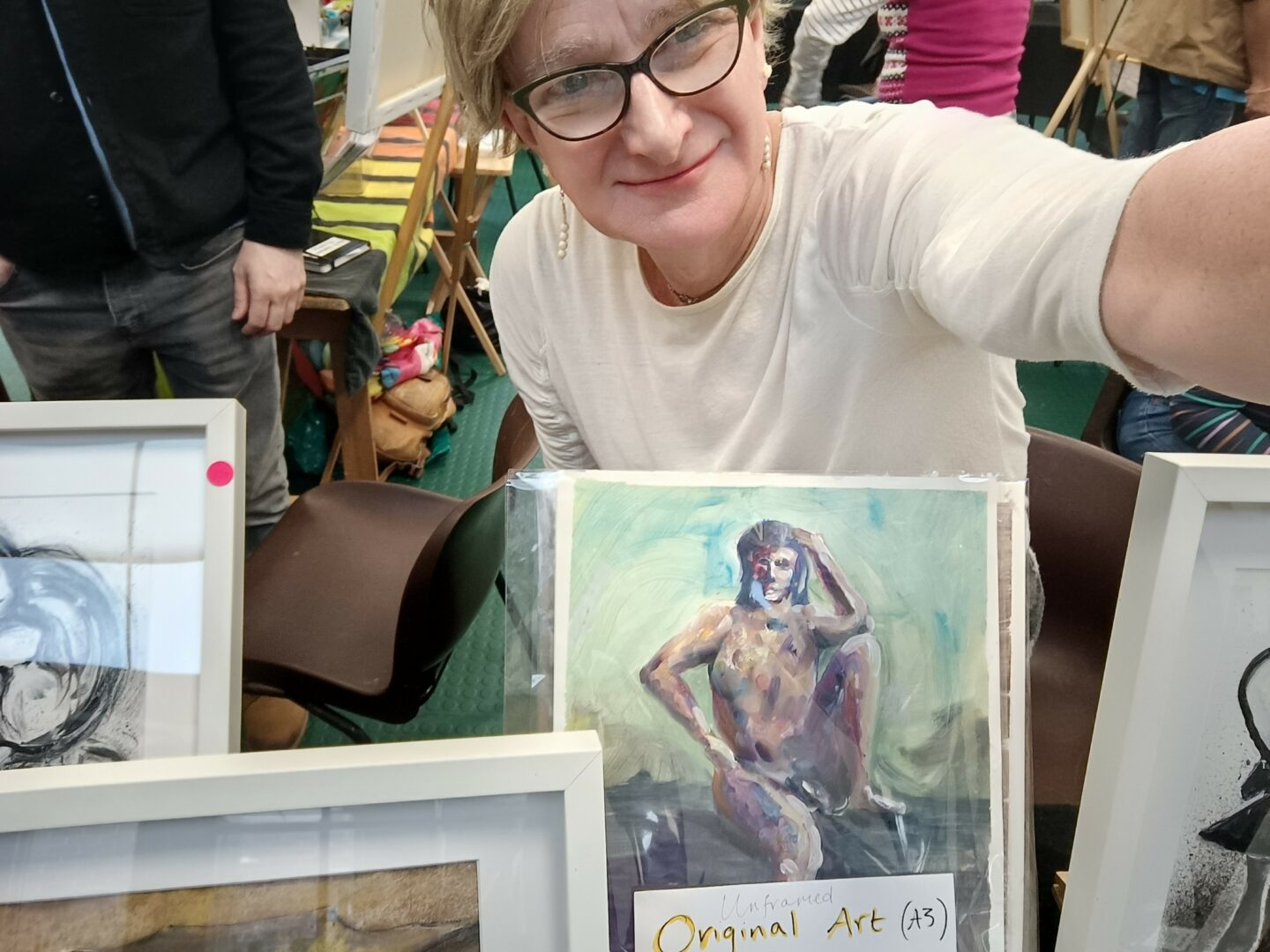
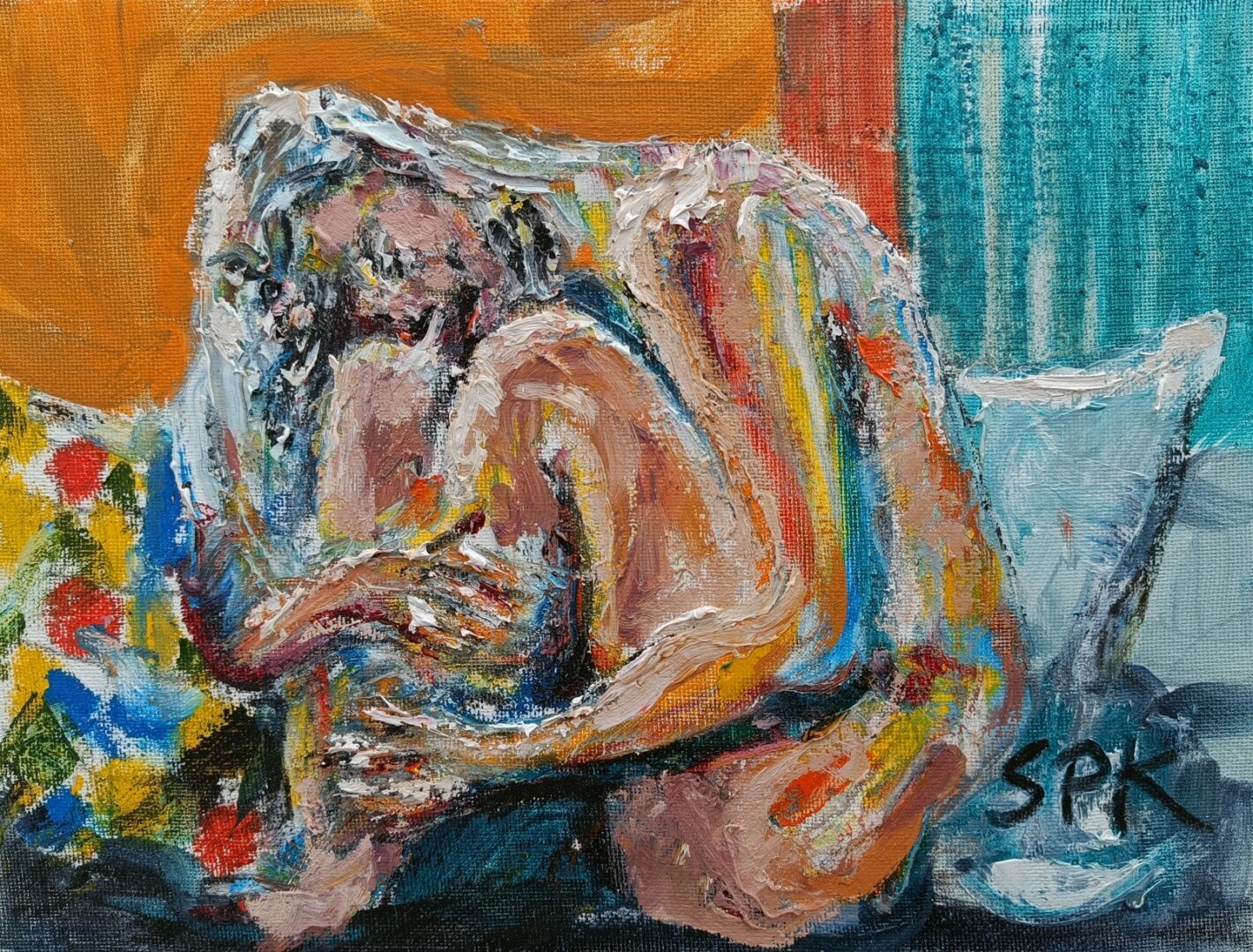
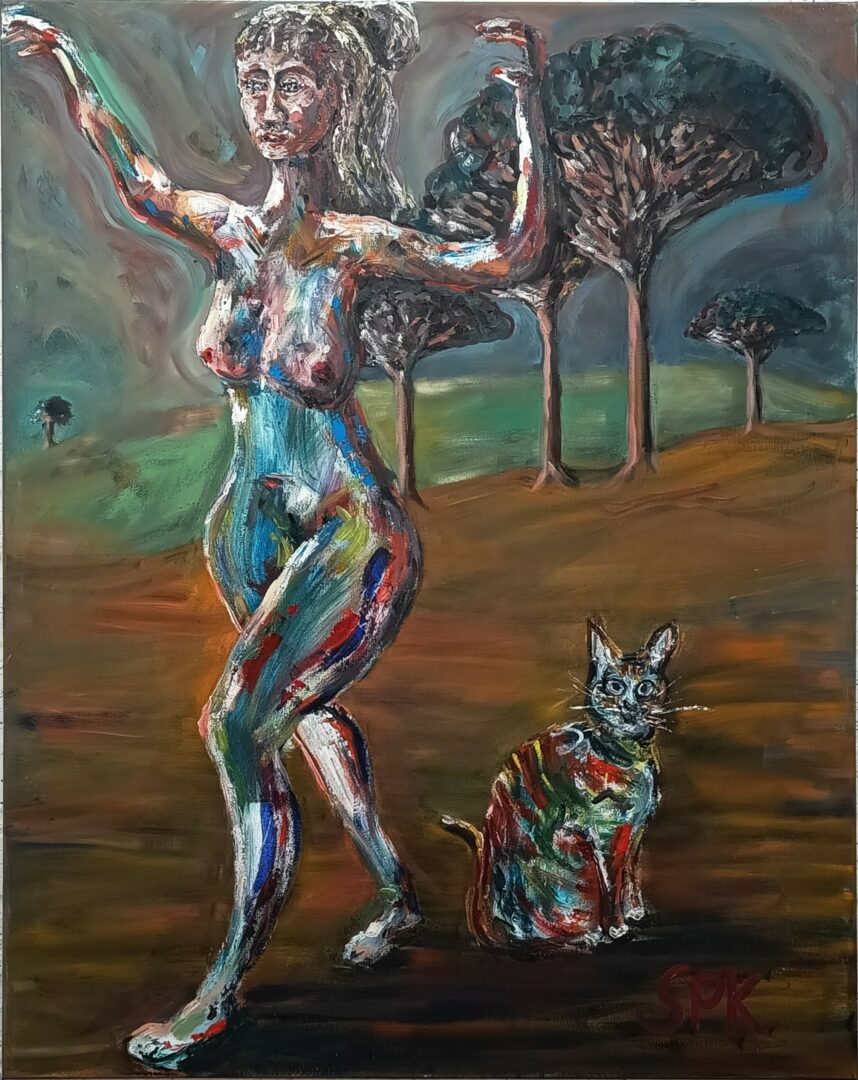
Image Credits
Sadie Kaye
so if you or someone you know deserves recognition please let us know here.

